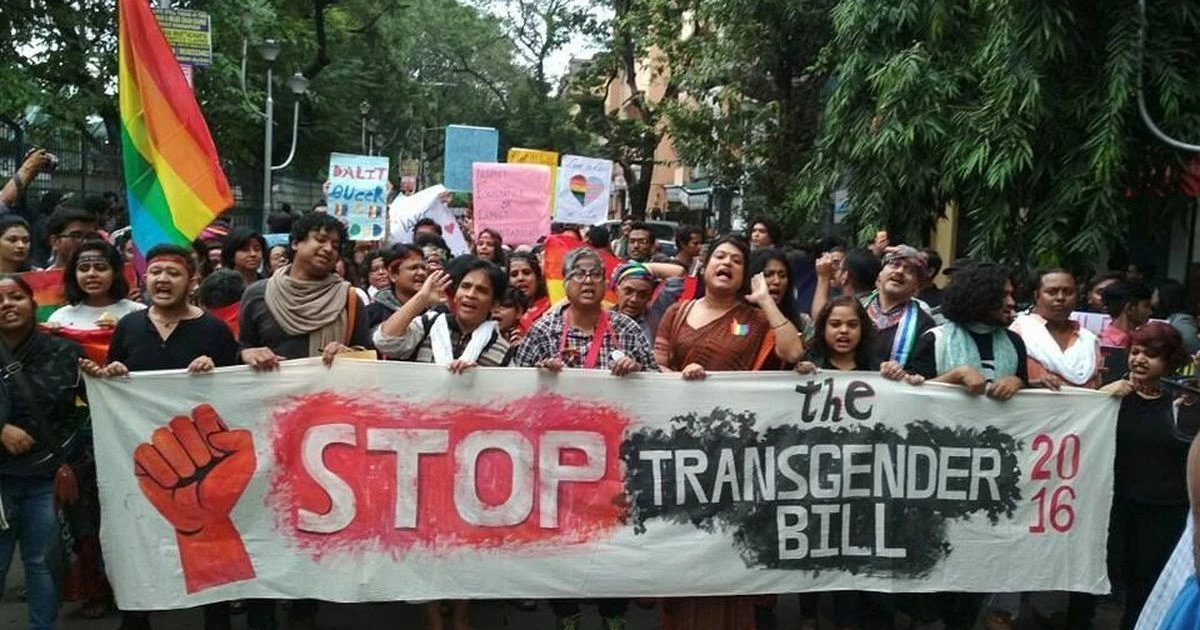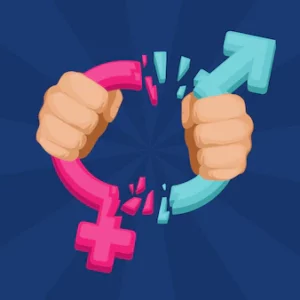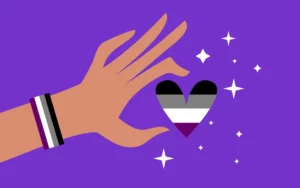In 2011, the United Nations High Commissioner for Human Rights, Navanethem Pillay, said that while racism, xenophobia and sexism have been condemned by many countries, issues like “transphobia are too often overlooked.” – This is true, particularly for our country- India.
FSoG today, brings forward some legal and technical analysis of ‘Transgender Persons (Protection of Rights) Bill’.
Despite a pre-colonial heritage that recognized and celebrated gender diversity in temple sculptures, mythology and religious treatise, transgender people in India, today, face intolerance, stigma, discrimination and violence. Human rights violations against transgender people pervade families, educational institutions, workplaces, institutions such as law-enforcement, healthcare, media, and society at large.
Stigma, discrimination and violence stem from intolerance of lives that transgress binary gender norms and expression, and threaten the gendered power relations of patriarchy.
Stigma against transgender people means devaluing of transgender-identified or gender non-conforming people, and negative attitudes toward and lower levels of status accorded to non-cis-gender identified people and communities.
Discrimination: “an action that treats people unfairly because of their membership in a particular social group.”
Violence: “the intentional use of physical force or power, threatened or actual, against oneself, another person, or against a group or community, that either results in or has a high likelihood of resulting in injury, death, psychological harm, mal development, or deprivation.”
“…..we must keep in mind that growth must not only be rapid, it must be inclusive and sustainable. The benefits of growth must reach the SCs, STs, Minorities and other disadvantaged groups in our society……” – Dr. Manmohan Singh, Prime Minister
The Transgender Persons (Protection of Rights) Bill, 2016
The Rights of Transgender Persons Bill, 2014, piloted by Tiruchi Siva, MP, was introduced in the RS on December 10, 2014. MPs across party lines discussed the bill in detail and rallied for its passage. This proved to be a game-changer leading to the RS passing a private member’s bill for the first time in the last 46 years. However, there was an unanticipated delay in discussing the bill in the Lok Sabha.
It was introduced in Lok Sabha on August 2, 2016 by the Minister for Social Justice and Empowerment, Mr. Thaawarchand Gehlot.
The Bill defines a transgender person as one who is
- neither wholly female or male;
- a combination of female and male; or
- neither female nor male. Such a person’s gender does not match the gender assigned at birth, and includes trans-men and trans-women, persons with intersex variations and gender-queers.
Legal perspective: –
Part 3 of the Indian Constitution gives us ‘Fundamental Rights’ and Article 14 prohibits discrimination based on sex, caste, religion, race or place of birth.
The bill prohibits discrimination against a transgender person including denial of service or unfair treatment in relation to –
- Education
- Employment
- Healthcare
- Access to, or enjoyment of goods, facilities, opportunities available to the public;
- Right to movement
- Right to reside, rent, own or otherwise occupy property
- Opportunity to hold public or private office; and
- Access to a government or private establishment in whose care of custody a transgender person is
The bill shall ensure non discrimination by taking following steps-
- Certificate of identity for a transgender person: A transgender person may make an application to the District Magistrate for a certification of identity, indicating the gender as ‘transgender’. The District Magistrate will issue such certificate based on the recommendations of a District Screening Committee.
- The Committee will comprise: (i) the Chief Medical Officer; (ii) District Social Welfare Officer; (iii) a psychologist or psychiatrist; (iv) a representative of the transgender community; and (v) an officer of the relevant government.
- Special provisions shall be taken by the relevant government to ensure the full inclusion and participation of transgender persons in the society which includes – rehabilitation, vocational training and self employment and create schemes for the welfare and to promote active participation in cultural activities.
Setting up of National Council for Transgender persons (NCT) and shall act as a consultation body for formulating legislations and laws:
- Members of the Council-
(i) Union Minister for Social Justice (Chairperson);
(ii) Minister of State for Social Justice (Vice- Chairperson);
(iii) Secretary of the Ministry of Social Justice;
(iv) one representative from ministries including Health, Home Affairs, Minority Affairs, Housing and Poverty Alleviation, Human Resources Development, etc. Other members include representatives of the NITI Aayog, National Human Rights Commission, and National Commission for Women. State governments will also be represented.
The Council will also consist of five members from the transgender community and five experts from nongovernmental organizations.
Offences and Penalties-
- The Bill recognizes the following offences:
- (i) begging, forced or bonded labour (excluding compulsory government service for public purposes);
- (ii) denial of use of a public place;
- (iii) denial of residence in household, village, etc.;
- (iv) physical, sexual, verbal, emotional and economic abuse.
Imprisonment: These offences will attract imprisonment between six months and two years, and a fine
Key Issues and Analysis
- The Supreme Court has held that the right to self-identification of gender is part of the right to dignity and autonomy under Article 21 of the Constitution. However, objective criteria may be required to determine one’s gender in order to be eligible for entitlements.
- The Bill states that a person recognized as ‘transgender’ would have the right to ‘self-perceived’ gender identity. However, it does not provide for the enforcement of such a right. A District Screening Committee would issue a certificate of identity to recognize transgender persons.
- The definition of ‘transgender persons’ in the Bill is at variance with the definitions recognized by international bodies and experts in India.
- The Bill includes terms like ‘trans-men’, ‘trans-women’, persons with ‘intersex variations’ and ‘gender-queers’ in its definition of transgender persons. However, these terms have not been defined and could be a major problem.
- Certain criminal and personal laws that are currently in force only recognize the genders of ‘man’ and ‘woman’. It is unclear how such laws would apply to transgender persons who may not identify with either of the two genders.
A BRIEF DESCRIPTION OF GENDER IDENTITY-RELATED LAWS IN OTHER COUNTRIES (IN RELATION TO SEX CHANGE OPERATION, AND FEMINISATION PROCEDURES; AND PROCEDURES FOR CHANGING THE SEX IN LEGAL DOCUMENTS)
Argentina:
The law legally recognize self-perceived gender identity of the both male-to-female and female-to-male trans* communities The law acknowledge the rights of trans* communities under Article 11 to free “personal development’ – sex transition by surgical interventions and or hormonal treatment The law allows legal minors to change their legal sex & name and undergo sex transition with some additional legal requirements such as accompanied informed consent, authorization by competent judicial authorities etc The law permits self-identified trans* communities to change their legal sex (from male to female or from female to male) and first name in birth certificate and national identity card even before sex transition by straightaway applying to National Bureau of Vital Statistics. In other words, surgical intervention and or hormonal treatment is not required for self identified trans* members to change their legal sex and name in official records. However, it is not clear, if minimum attire of trans* communities are taken into consideration (in practice). Change in legal sex and name will not have implications in the existing legal entitlements to rights and legal obligations.
UK – Gender Recognition Law: The law legally recognizes gender identity of trans* communities who have gender dysphoria, lived in ‘acquired gender’ for more than 2 years, and intends to live in the ‘acquired gender’ until death (within binary gender model. That is from male to female or, from female to male)
Trans* communities can change their legal sex by sending an application along with requisite documents (that includes medical certificate for gender dysphoria) to gender recognition panel. After scrutinizing the documents/applications, the panel will provide full or interim gender recognition certificate based on marital status of applicants (heterosexual marriage) After getting full gender recognition certificate, the person acquires for all purpose, the sex to which he or she has changed (marriage, child adaptation). However, there are some restrictions levied to transsexuals relating to gender-affected sports and gender-specific offences for exercising their rights in newly acquired sex. It ensures confidentiality of information (former life/identity of trans*communities) Change in legal sex does not affect parenthood, succession rights, and peerages Change in legal sex has effect on marriage and social security benefits/pensions
Jersey –Gender Recognition (Jersey) Law 2009
The law legally recognizes gender identity of the both male-to-female and female-to-male transsexuals. It allows transsexuals of ‘full’ age to change their legal sex and name by applying to the Royal court for gender recognition certificate. After getting a full gender recognition certificate, relevant changes will be made to the birth certificate and other official records/registers. From there afterwards, the person acquires for all purpose in Jersey, the sex to which he or she has changed (marriage, child adaptation). However, there are some restrictions levied to transsexuals relating to gender-affected sports and gender-specific offences for exercising their rights in newly acquired sex. Transsexuals heterosexually married will not be given full gender recognition unless they provide evidence of annulment/divorce/death of their spouse. Transsexuals based in Jersey who have done SRS and marriage outside Jersey need to apply for gender recognition certificate to get legal recognition of their sex and marriage respectively. It ensures confidentiality of information. Change in legal sex does not affect parenthood and succession rights
South Africa – Alteration of Sex Description and Sex Status Act The law allows a transgender person to apply to the Department of Home Affairs to have the ‘sex description’ altered on their birth record. Once the birth record is altered, they can be issued with a new birth certificate and identity document, and are considered “for all purposes” to be of the new sex. The specific definition of gender reassignment in this Act
refers to reassigning a person’s sex by changing physiological or other sexual characteristics, and includes any part of such a process. Thus, the transgender person is not required to have had genital surgery in order to have the sex description altered.
Japan– Act on Special Cases in Handling Gender for People with Gender Identity Disorder – with effect from 16 July 2004 the law enables transsexual people to change their legal sex. Despite the fact that sex reassignment surgery and hormone replacement therapy are mandatory for a legal sex change, it is not paid for by national health insurance.
Germany –
The German Gender Recognition Act the German Gender Recognition Act (Transsexual Act – Transsexuellengesetz) provides regulations on the change of the civil status of a person concerning his or her gender. The so called “small solution” allows the transsexual person to change his/her first name (Sec. 1 Transsexual Act). The so-called “big solution” allows for the change of the gender status (Sec. 8 Transsexual Act). In all cases, a judge decides on the change of the name and the change of gender status (Sec. 2 and 8 of the Transsexual Act). The Transsexual Act is vastly criticized as it requires a psychiatric examination procedure, requiring the transsexual to agree to be mentally ill.
In 2008 the judges declared the requirement of a divorce (in order to avoid marriages between people of the same sex) as void. It has been removed from the Transsexual Act. In 2011 the judges argued that the juridical recognition of transsexual people may not be made conditional upon genital surgeries. Thus, they declared the provision as inapplicable until such time as a new provision comes into force.
On the question of legal treatment of transgender, the German legislation differentiates between transsexual and intersexual persons. The opinion of the German Ethics Council makes clear that intersexuality or the general term DSD (disorders or differences of sex development) are variations of the anatomic appearance, in which the assignment of the individual to the male or female sex is doubtful due to the internal and external genitals.
The term transsexuality has to be clearly differentiated from the terms DSD and intersexuality. Transsexuality is typically existing when individuals note that their physical sex is polar to their psychological sex. The German Ethics Council draws a clear dividing line between intersexuality and transsexuality and thus confirms the opinion that there are two different groups of people concerned: In contrast to transsexuality in which people concerned feel related in the course of their lives to the other than their biological sex and in which the question of gender identity and gender role plays an important part, the term intersexuality comprises a host of biological-somatic given ambiguities of the sexual characteristics, which can exist already at birth
The legislator adopted the topic “intersexuality” discussed by the German Ethics Council and clarified that the gender indication remains open in the birth registration if it is not clear without doubt. The regulation aims at relieving the parents from pressure to lay down a gender right after the birth of a child and for that reason to have sex reassignment medical interventions done on the child too soon. The fact that the registrar may leave the data field “sex” open in the birth register does not lead to the introduction of a new gender category. In the entire legal order, especially in the constitutional and civil right, only the genders male and female exist. The personal status right as register right only reflects the family law position of a person as a kind of “mirror of the family right”. Regulations for registrar’s entry cannot answer the questions resulting from intersexuality for the marriage right and the other legal order.
France
The country treats discrimination on grounds of transgenderism as a form of sex discrimination. In France, hormonal treatment and/or surgery are required for gender reassignment.
The individual must demonstrate: a) that (s)he has followed a medically supervised process of gender reassignment – often restricted to certain state appointed doctors or institutions;
b) that (s)he has been rendered surgically irreversibly infertile (sterilization), and/or
c) that (s)he has undergone other medical procedures, such as hormonal treatment.
France permits a ‘post-operative transsexual’ to marry a person of the sex opposite to their acquired gender. Also, the name can be changed after medical health evaluation and/or surgery, and/or hormonal treatment.
Transgender persons are defined as a distinctive “social group”. They have the right to change their civil status, first name and the sex stated on their birth certificate, but this right does not appear in law, only in jurisprudence. In 2009, France became the first country in the world to declassify transsexualism as a mental illness. Transsexualism is part of the ALD (31) and treatment is funded by Security Sociale. The French Senate voted unanimously in July 2012 to prohibit discrimination against transgender people. Some case laws on above points: Transsexuals have the right to change the sex stated on their birth certificate. This right appears in no law, but in jurisprudence. In 1992, France was found guilty by the European Court of Human Rights on 25 March (B. v. France) of violating Article 8 of the European Convention on Human Rights. Seized by a complaint by Miss B., a transsexual man who had become a woman, The European Court found that French law, by requiring constant revelation of her official sex, placed the complainant in a situation that was incompatible with her right to privacy. Following this European verdict, the Plenary Assembly of the Court of Cassation amended its jurisprudence relative to transsexualism. It now allows the birth certificate to be amended after a sex change in the name of privacy rights: “the principle of the right to privacy justifies that the civil status of the transsexual person indicate the sex he or she appears to be”
Transsexuals also have the right to change their forename. Changing the sex stated in one’s civil status automatically gives one the right to change one’s forename if one so wishes. Like any person, a transsexual has the right to the respect of his or her family life, as protected by article 8 of the E.C.H.R. He or she may marry in his or her new sex, a right which has never been prohibited in France. Finally, a transsexual may be granted visiting rights to an ex-cohabiting partner’s child.




One thought on “ Transgender Persons (Protection of Rights) Bill ”